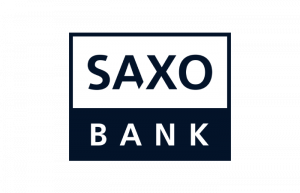Cryptocurrency Market: Trends and Dynamics Shaping the Future
The cryptocurrency market is a vibrant ecosystem evolving rapidly, influencing global finance. This article delves into the market’s trends, challenges, and potential growth.

The cryptocurrency market has emerged as a disruptive force in the financial sector, attracting immense interest from investors, technologists, and regulators alike. Characterized by volatility, innovation, and speculation, this market offers both high-risk opportunities and substantial rewards. As it continues to evolve, understanding the underlying trends and dynamics is crucial for anyone looking to engage with this digital economy. This article explores the current state of the cryptocurrency market, highlighting key trends, challenges, and potential areas for growth.
Expansive Growth of Cryptocurrencies:
Since Bitcoin’s inception in 2009, the cryptocurrency market has expanded dramatically. There are now thousands of cryptocurrencies, each with unique functionalities and objectives. Major cryptocurrencies like Ethereum have introduced smart contracts, which execute automatically when conditions are met, thereby supporting the development of decentralized applications (dApps). Other significant coins, like Ripple and Litecoin, aim to enhance speed and cost-effectiveness in transactions.
Market Volatility and Regulatory Environment:
One of the most notable features of the cryptocurrency market is its high volatility. Prices can skyrocket or plummet based on factors such as technological developments, regulatory news, market sentiment, and macroeconomic trends. This volatility is often driven by speculative trading and can result in substantial gains or losses for investors.
Regulatory attitudes towards cryptocurrencies vary significantly across the globe. While some countries have embraced them, others have imposed strict regulations or outright bans. The regulatory environment is crucial as it impacts market stability and investor confidence. Positive regulatory developments, such as the acceptance of cryptocurrency ETFs and clearer guidelines for their use and taxation, can encourage market growth.
Technological Advancements and Security Concerns:
The technology underpinning cryptocurrencies is continually evolving. Innovations in blockchain technology, such as scalability solutions and privacy enhancements, are crucial for the long-term viability of cryptocurrencies. However, the market also faces significant security challenges, including hacks, fraud, and theft, which pose risks to investors and can impact market perceptions negatively.
Institutional Adoption and Retail Investment:
The cryptocurrency market is increasingly witnessing institutional interest. Major banks, hedge funds, and financial institutions are exploring or investing in cryptocurrencies, either directly or through various crypto-related products. This institutional adoption is critical as it brings liquidity, stability, and credibility to the market.
Retail investment has also been a significant driver of the market. Platforms like Coinbase, Binance, and Robinhood have made it easier for casual investors to buy, sell, and hold cryptocurrencies, contributing to the market’s growth and visibility.
Future Outlook:
The future of the cryptocurrency market looks promising yet uncertain. Factors such as technological advancements, regulatory changes, and macroeconomic factors will continue to shape its evolution. As the market matures, it may see greater integration with traditional financial systems and broader acceptance as a legitimate investment class.
The cryptocurrency market is complex and rapidly changing, offering significant opportunities for those who understand its dynamics. By staying informed about technological trends, regulatory changes, and market movements, investors and enthusiasts can navigate this exciting field more effectively. As the market continues to develop, it will likely play an increasingly prominent role in the global financial landscape.









